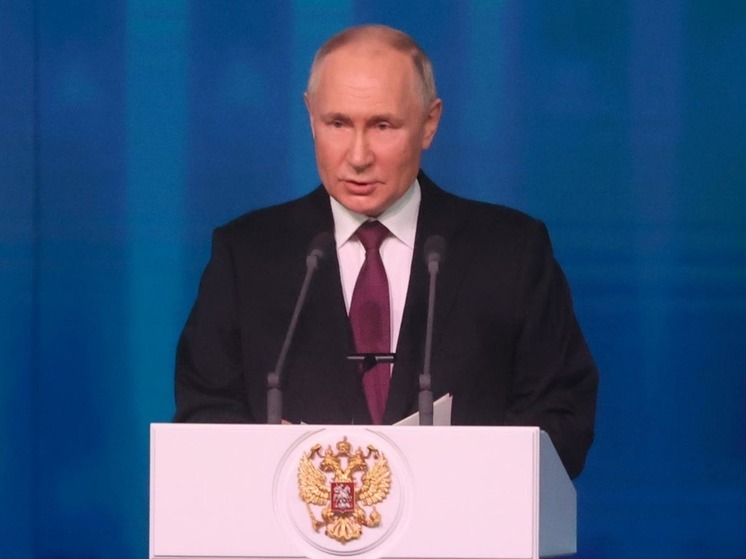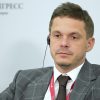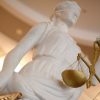On the day of its tercentenary, the Russian Academy of Sciences received new opportunities
The Russian Academy of Sciences received a mountain of special gifts that increase the social significance of scientists for its tercentenary, and with it, we would like to believe, our entire country. The changes became known on a holiday for Russian science, February 8. First, on this day, the Council under the President of the Russian Federation on Science and Education met, in the evening the action moved to the State Kremlin Palace, where, before the gala concert, Vladimir Putin once again emphasized the importance of the Russian Academy of Sciences, announcing a significant expansion of its functions.

So, the leadership of the academy will be given to the Higher Attestation Commission (Higher Attestation Commission), RCNI (Russian Center for Scientific Information), scientific publishing and examination of textbooks for universities and schools. In addition, the head of state gave instructions regarding an additional increase in funding for both the academy itself and scientific research conducted under its leadership, as well as doubling scholarships directly to academicians and corresponding members.
Many wise people have spoken about the need to increase the role of the Russian Academy of Sciences before, because the strength of industry, the economy, and the in the end — the well-being of citizens. The current foreign policy conditions have only once again confirmed: without technological sovereignty, we will never see either victory or development. The strategy for scientific and technological development (STD) should be equal in importance to the National Security Strategy.
“This is a continuation of what Vladimir Putin outlined in his Address to the Federal Assembly in March 2018,” says Vladimir Ivanov, Deputy President of the Russian Academy of Sciences, Corresponding Member of the Russian Academy of Sciences. – In it, he set the country a new vector of development. Namely: quality of life, eliminating the technological gap, territorial development, defense and security. This was fundamentally different from previous policies, which prioritized doubling GDP. Further strategic documents were adopted along this given vector.”
The situation changed even more under the conditions of the introduction of sanctions, and in October last year, Secretary of the Security Council of the Russian Federation Nikolai Patrushev, at a retreat in Tomsk, proposed transferring the economy to a “full innovation cycle mode.” This means producing high-quality products based on the results of domestic fundamental scientific research and development.
On February 8, in his speech at the celebration of the 300th anniversary of the Academy, the president continued this logical chain, announcing the new STR Strategy. In this regard, several key points are changing for the Academy. Let's start with the fact that the President of the Russian Academy of Sciences, after a 10-year break, became a member of the Security Council of the Russian Federation. The last head of the Academy included in this Council was Yuri Osipov. Further, the President spoke about the transfer to the RAS of the Higher Attestation Commission, the publishing house «Nauka» and the Russian Center for Scientific Research.
These are absolutely correct decisions, they are fully consistent with the current law on the Russian Academy of Sciences, and will further enhance the role of the Academy in the development and implementation of state scientific and technical policy.
Regarding the Higher Attestation Commission, revolutionary changes have been expected for a long time. Thus, Gennady Krasnikov has previously repeatedly noted the need for more systematic interaction between the Russian Academy of Sciences and the Higher Attestation Commission, which is subordinate to the Ministry of Education and Science. In particular, he did not welcome the established practice of transferring rights and powers to award academic degrees to leading universities and scientific organizations. “We see many initiatives in the issue of defenses and awarding of academic degrees, which require more detailed study and analysis. Even based on the experience of my work with the Physics and Technology Institute in Dolgoprudny, I see that many universities have their own approach to awarding academic degrees. At this university, a one-time dissertation council is formed for each defense; at Moscow State University, a different approach is traditional. All this needs to be analyzed, summed up, and the best practices adopted,” Krasnikov said in an interview with Rossiyskaya Gazeta. In addition, the President of the Russian Academy of Sciences noted that the Higher Attestation Commission, in its latest version, began to lose the overall picture of what was happening — “very worthy works could pass by.”
Now we have Putin’s statement dated February 8, 2024 that “The Russian Academy of Sciences should take over the management of the activities of dissertation councils, the examination of their decisions and the analysis of dissertations put forward for defense,” and one of the vice-presidents of the Russian Academy of Sciences should head the Higher Attestation Commission. It should be expected that Vladimir Filippov, who headed this respected organization for many years, will resign; it is possible that the reorganization will “pull” personnel changes in the dissertation councils of the Commission themselves.
As for the transfer of the Nauka publishing house to the RAS, many experts I interviewed also welcome this decision: the absurdity that the RAS was responsible for publishing activities, but did not have the material basis for it, will finally end.
< p style="text-align: center;">
Another important issue that was discussed on Science Day both at the Presidential Council for Science and Education and in the Kremlin was financial support for scientists.
To ensure the country is “self-sufficient in key areas and across full innovation cycles,” research and development must be adequately funded.
The country's president admitted that “in real terms, spending on science has decreased.” In this regard, he instructed the Government to expand financial support for research. However, it was said that funding would be linked to how effective an institution is. We have finally decided on the criteria for this effectiveness. If previously the number of publications was put in first place, now scientific programs must have concrete results: products, new technologies, qualitative changes in the economy, in people’s lives. As such results, Vladimir Putin cited as an example the meat products of Smena-9 chickens bred by the All-Russian Research Institute of Poultry Science of the Russian Academy of Sciences, and the Rosatom project “Breakthrough”. The latter is aimed at a new quality of nuclear energy through the so-called closed nuclear fuel cycle (CNFC), which involves the full use of the energy potential of natural uranium raw materials through its reuse.
The Academy of Sciences itself, the absolute effectiveness of which the authorities apparently do not doubt, received one-third more money for 2024 than in the past. The amount, according to Vladimir Putin, amounted to almost six billion rubles. Also, starting from 2024, monthly payments to academicians and corresponding members have been increased by one and a half times. “I think that this is not enough,” the president said generously in the Kremlin Palace. – I propose here another solution, namely, to double the size of such payments compared to 2023. In this audience, I can name the numbers: an academician will have to receive 200 thousand rubles monthly, a corresponding member – 100 thousand rubles.”
In order for new high-tech domestic products to be in demand on the market, it is necessary at first to protect them from foreign business sharks. Due to initially correct development, they have long been selling their products cheaper, often deliberately dumping them, due to which ours are often unable to compete. This topic, according to the telegram channel “Education Policy News,” was raised at the Russian Presidential Council on Science and Education by Maxim Nikitin, Doctor of Physical and Mathematical Sciences from MIPT. He cited the example of the domestic instrument industry, which is experiencing fierce competition with Asian instruments. “They are cheaper (including due to dumping), and procurement legislation directly forces one to purchase them (and send money abroad) rather than domestic products (the income from which is spent on wages, social insurance and taxes within Russia),” – conveys his words to NOP.
Finance Minister Andrei Siluanov responded that within the framework of Federal Laws 44 and 223, the “second odd one out” rule will apply. It will immediately give preferences to domestic companies. In addition, he promised to introduce a 15% price preference (that is, a domestic analogue can cost 15% more than an imported one). In addition, the minister proposed introducing a kind of duty on imported goods, and using the received funds to develop their own technologies.
It turns out that the authorities have now begun to correct the errors that were written into the law earlier? From 1993 until recently, we were all guided by the fact that we would buy everything in the West, and only now we realized that this led to the wrong place? Well, let's see how the president's new, very logical and majority-accepted instructions will be implemented. If only the personnel, who, as they say, decide everything, do not fail.

























































Свежие комментарии